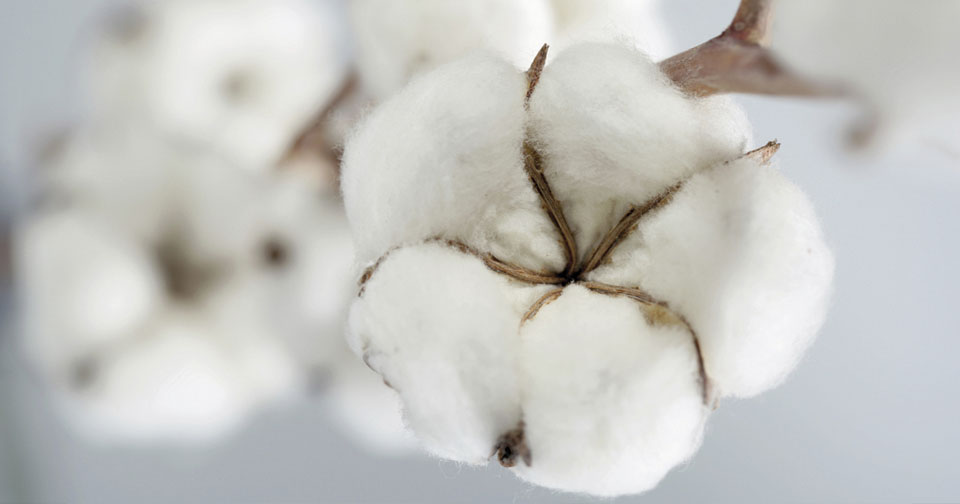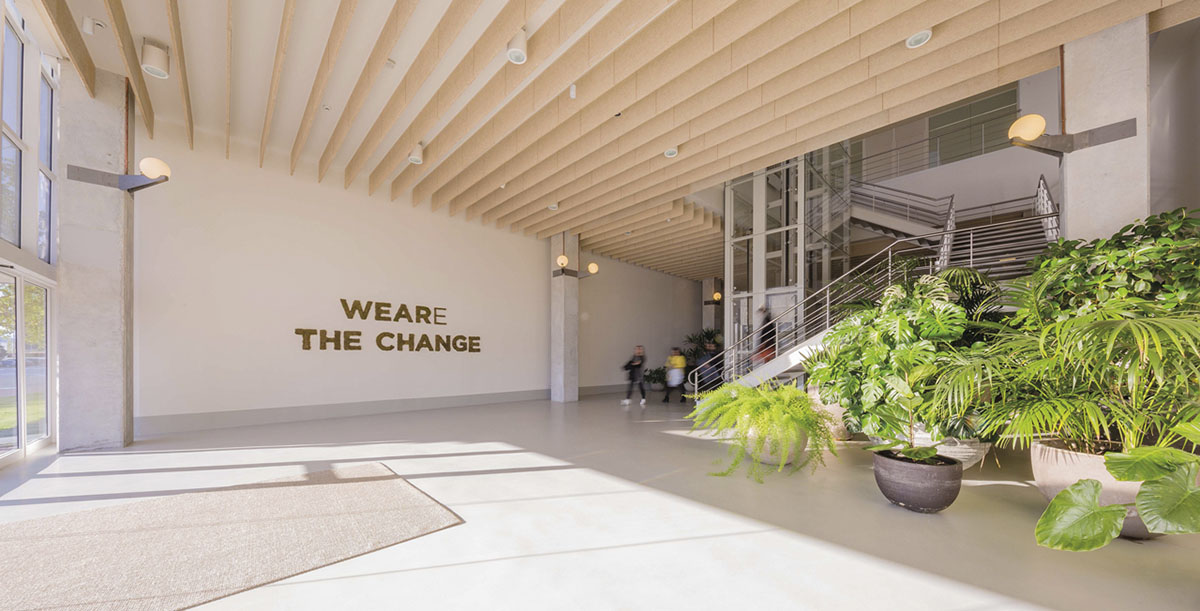2. MORE SUSTAINABLE RAW MATERIALS
The choice of materials used in the creation of a garment is an essential phase in the design process. Following the fundamental principles of our Global Sustainability Policy and the Strategic Environmental Sustainability Plan 2016-2020, one of our priorities is to promote the use of more sustainable fibres which have a lower impact on the environment and reflect more efficient use of resources.
At Inditex, we work on the awareness and training of our retail teams and our suppliers, with the objective of advancing the use of sustainable fibres such as organic cotton or TENCEL®Lyocell and in the incorporation of recycled fibres.
Cotton is one of the most used raw materials in the creation of our garments. The focus on organic or ecological cotton allows us to reduce the environmental impacts of production, as, unlike conventional cotton, its cultivation is carried out with organic seeds and more sustainable methods.
Thus, in 2016, Inditex Group commercialised a total of 36.7 million garments made from organic cotton, which translates to the consumption of 5,000 tonnes of this material. As a consequence of this strong focus, the independent organization Textile Exchange positioned us as the fourth company on a global scale in consumption of organic cotton by volume, which was up five positions compared with the previous year. Furthermore, Inditex is ranked as the second company that most increased consumption of organic cotton1.
During the year, the Group also increased its consumption of TENCEL®Lyocell, a fibre created from wood originating from sustainable forests, where the trees are cultivated in a controlled manner and with programmes that guarantee reforestation. The production process for this fibre is carried out in a closed circuit that allows the reuse of water and over 99% of chemicals used. Inditex is the world leader in the consumption of this material, having sold 6.35 million garments made from it in 20162.
1 Source: Organic Cotton Market Report 2016, Textile Exchange.
2 Source: Preferred Fibres Market Report 2016, Textile Exchange.
RECYCLED RAW MATERIALS
In production processes with recycled textiles, less water, energy and natural resources are consumed than in the creation of new fibres, therefore the environmental impact is lower. Although downcycling, where materials of lower quality than the originals are obtained, is the most developed type of recycling in the textile industry, at Inditex we focus on upcycling, which allows the creation of new fibres of the same quality.
For this, we have been working for years with companies specialized in the conventional recycling of cotton and polyester, textiles that are very common in our collections.
To continue this, in 2016 we began projects with cutting edge companies in innovative and sustainable textile production such as Lenzing, and with entities such as the Massachusetts Institute of Technology (MIT) to improve recycling of textile fibers. This work has already resulted in materials such as Refibra™Lyocell, with Inditex being a pioneer in commercialisation of the material.


Sustainable fashion collections
To enable our customers to quickly identify the products that have raw materials or manufacturing processes that are particularly responsible and environmentally friendly, some Inditex brands have launched specific collections of more sustainable products. In this way, the customer can recognise the progresses in this area and identify items with differentiating characteristics of sustainability, such as, for example, the use of raw materials such as organic cotton, TENCEL®Lyocell or recycled fibres.

FOREST PRODUCT POLICY
All of our products from forests are managed responsibly. Since 2014, Inditex has had a Forest Product Policy that is applicable to all areas of our business in order to ensure that all of our activities are developed in a sustainable way, protecting primary and endangered forests. Also, we work to ensure that all our man-made cellulosic fibres are sourced from sustainably-managed forests.
In line with this commitment, we give preference to procuring forest products with a high proportion of recycled and post-consumer waste material, and encourage our suppliers to maintain, improve and increase their offering of this type of product.
Under the CanopyStyle initiative promoted by the Canopy Planet organization, Inditex and other leading brands in the textile sector continue to promote the sustainability of man-made cellulosic fibres. As founders of CanopyStyle, we promote the adoption of positions aligned with our philosophy of environmental respect among the main global suppliers of these fibres. In 2016, nine large suppliers of cellulosic fibres committed to guarantee the sustainability of forest-based products and four of them have initiated independent verification of their compliance.
All paper products (bags, labels, office paper, etc.) and furnishings used in our activities are certified under the PEFC or FSC standards, guaranteeing that the entire process of forestry management is carried out in a sustainable and accountable way.
ANIMAL WELFARE POLICY
All products of animal origin used in the items commercialised by our brands originate from animals that are treated in an ethical and responsible manner. Thus, none of Inditex’s retail formats sell fur or angora products. Since 2013, Inditex has been a member of the Fur Free Retailer Programme by the Fur Free Alliance. Also, in 2015, it definitively rejected the production and sale of angora wool after an agreement with PETA (People for the Ethical Treatment of Animals).